HSE Wraps Up Its First April Conference to Be Held Online
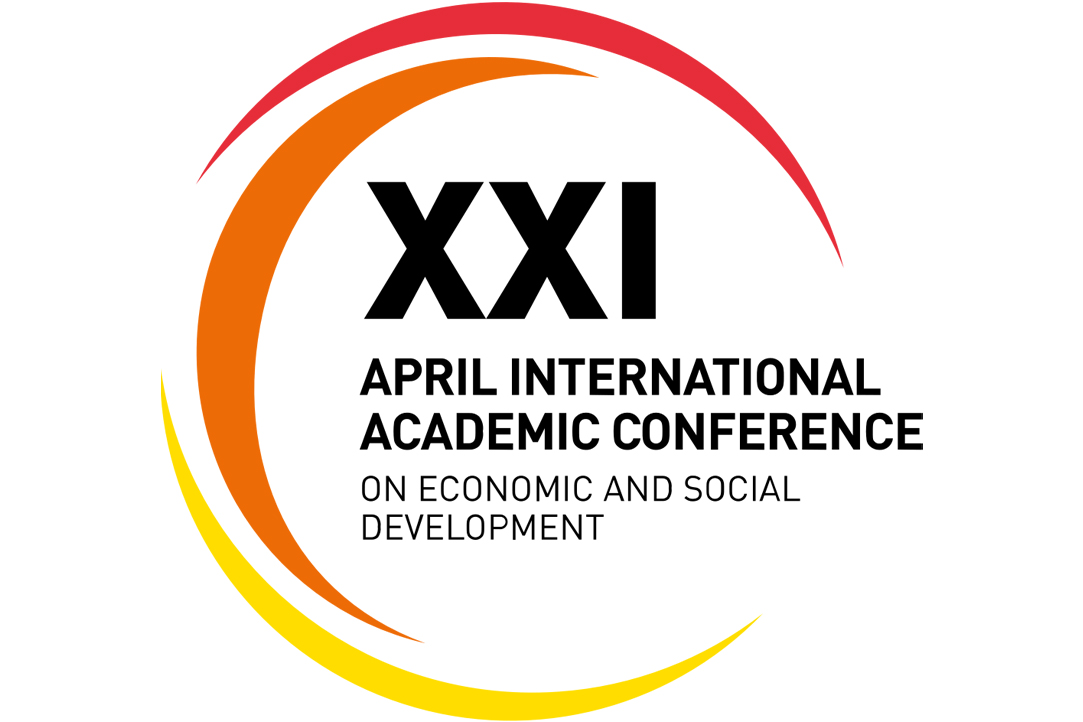
As it entered its third decade of existence this year, HSE University’s annual April Conference experienced a first: it was held in an online distributed format. HSE News Service spoke with organizers and participants about the event.
This year, the April International Academic Conference on Economic and Social Development (AIAC) was set to be held for the 21st time. The application period for the conference began on September 9, and by the November 20 deadline, the conference committee had received 1,080 applications. As a result, the academic portion of the conference programme included 726 presenters (92 of which were from outside of Russia). Among those participating in the conference in other capacities, there were 270 Russians and 96 foreign citizens (20 of which were from CIS countries and the EAEU). In total, 1,092 participants were slated to participate in the conference sessions. But then the coronavirus pandemic began...
Distributed Format
Ivan Prostakov, Deputy Head of the Programme Committee, Head of the Conference Organizing Committee, Vice Rector of HSE University
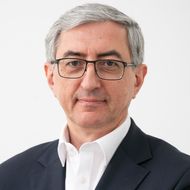
In March, we faced the difficult question of what to do with the April Conference, which is not only the largest academic event of our university, but our flagship event that symbolizes almost the entire history of HSE. The most obvious option was to postpone it to a later date—this was what almost all universities, research organizations, and associations, not only in Russia but throughout the world, were doing at that moment. But on March 11, the Academic Council decided otherwise. We would hold it remotely in a distributed format so as not to break from tradition and show that our university is ready for even the most unexpected challenges. In addition, a lot of preparatory work had already been done: the programme had been drawn up, and more than 700 Russian and international researchers were prepared to give presentations. It would have been unfair to cancel the event. At the same time, we were left with only three weeks to organize and implement a new format.
In the distributed format, some sessions, special round tables, and associated events were held online, and in all other cases, participants had the opportunity to expand upon their previously uploaded abstracts and presentations by posting detailed descriptions and video presentations of their papers.
Lev Yakobson, Deputy Head of the Conference Programme Committee, Vice President, HSE University
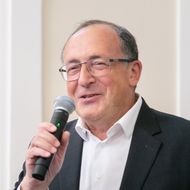
At previous April conferences, it was discussed more than once that crises not only result in losses but present new opportunities. It was noted that in our economy there is not enough room for constructive demolition. However, no one expected that, having found ourselves in a situation that truly tests the adage ‘every cloud has a silver lining’, the AIAC itself would become an experimental platform for hastening potential opportunities that were originally planned to be pursued over some time.
When most other conferences were being postponed or cancelled, the HSE Academic Council decided to hold the 21st AIAC in a distributed format. HSE’s habit of striving to be the first in Russian higher education to test promising new innovations certainly played a role in this decision. It seemed risky. Honestly, I personally assumed that instead of full-fledged sessions and round tables, we would mainly receive texts and presentations on the AIAC website as well as written comments about them. The reality turned out to be completely different. In terms of its content and the roster of active participants, the XXI AIAC holds a worthy place in April Conference history. This required extraordinary efforts from those involved in the organization and technical support of the events.
In addition, this year, due to the pandemic, it was decided to hold the conference not over the course of one week, but two months—April and May. With this approach, the online format provided an additional opportunity for conference participants to attend not just one session out of a large number of events taking place simultaneously, but almost all of them.
Evsey Gurvich, Head of the Economic Expert Group
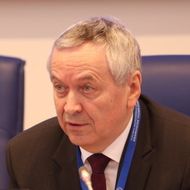
Initially, I was quite skeptical about the idea of holding the April Conference sessions online. It was difficult to imagine how it was going to be possible to gather all of the speakers and a sufficiently large number of attendees interested in a certain topic at the same time, which would involve enticing them to take time away from their busy schedules in order to achieve a lively discussion. However, while the self-isolation orders were in effect, most Russian participants willingly agreed to present their papers on Zoom (though we lost most of the foreign speakers).
I was doubly surprised that, as it turned out, the experience of listening to presentations online was much better than doing so as part of a live audience. The lack of distractions allows you to fully focus on the speaker and their presentation, to better comprehend their approach more quickly, and to still have time to formulate questions or criticisms. In addition, in some important sessions, participants contributed to the discussion, who otherwise would not have been able to attend the event in Moscow due to their schedules.
Expert Reports
HSE University expert reports are one of the traditions of the April Conference. A huge number of HSE researchers and experts participate in their preparation. These reports are consistently of interest not only to the expert community and the authorities to which they are primarily addressed, but the media as well.
This year, 14 expert reports were prepared and presented at the Conference.
Lev Yakobson, Deputy Head of the Conference Programme Committee, Vice President of HSE University
Worthy of special mention are the HSE University reports, which express the University’s position on the most pressing issues of public life and are traditionally presented at the AIAC.
The unprecedented turn of events required many of the report drafts prepared before the conference to be adjusted in many respects. The adjustments reflected the authors’ meticulous work in evaluating the constantly changing situation and developing recommendations for overcoming the crisis. For obvious reasons, the usual plenary sessions could not be held. However, the online expert discussions of the reports turned out to be extremely interesting, and the main ideas of the reports were reflected in the materials that HSE University sent to the Government and the Presidential Administration of Russia during these months.
The online presentation of the report, ‘Regulated Procurement in Russia: How to Increase the Stimulating Role of Budget Expenditures and Regulated Companies’, became the most viewed report on the Conference’s video channel, which was created as an additional platform for discussion, as well as a place to view the results of the conference distributed over time. In total, more than 1,800 people took part in the online discussion of expert reports or viewed their presentations on the video channel of the conference.
Garnering the largest media response was a press conference at which the HSE report, ‘Protecting Peace, Land, and Freedom of Choice for All Countries: New Ideas for Russia’s Foreign Policy’, was presented. And the presentation for which the largest number of journalist accreditations was issued was the presentation of the report, ‘Innovative Development in Russia’s Agricultural Sector: Agriculture 4.0’.
Nadezhda Orlova, Head of the Department of Economics of Innovation in Agriculture and the Institute for Agrarian Studies, HSE University
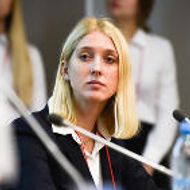
The presentation of the report from the Institute for Agrarian Studies, ‘Innovative Development in Russia’s Agricultural Sector: Agriculture 4.0’, which was held on Zoom and the Conference’s YouTube channel simultaneously, was a huge success. About 140 people watched the presentation and participated in the discussion. We received a huge amount of positive feedback and gratitude for the event.
Digitalization is one of the pressing issues of our time that can improve the efficiency of many industries, and the agro-industrial complex is no exception. Holding the event online showed that HSE is ready to take on any difficult challenge and find the best solution.
Of course, organizing the April Conference in a remote format was no easy task, but it was the most appropriate solution in light of the Covid-19 pandemic. The conference owes its great success to the incredible, hard work and erudition of every HSE employee who was involved.
Sessions and Special Round Tables
The April Conference this year consisted of 16 sessions, during which 71 panels were held online. Of the 1,008 approved papers of the XXI AIAC, 296 papers (or 40% of the total) and 18 previously recorded papers were submitted online. Most of the sessions were held on Zoom.
Jason Brownlee, Professor, Department of Government, University of Texas at Austin (USA)
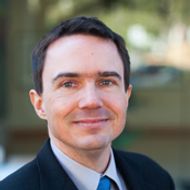
I’d say the online conference was very successful, at least the portion I participated in. I thought the Zoom format went well. On my end, I could learn some more about following the chat comments on YouTube. However, as a small recommendation I would recommend that the YouTube visuals and the speaker image and slides take up equal space during the lecture.
Wladimir Andreff, Emeritus Professor at the University Paris 1 Panthéon Sorbonne; President of the Scientific Council at the Observatory of the sports economy, French Ministry of Sports 2019 Chelladurai Award of the European Association of Sport Management
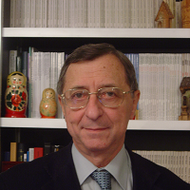
I just participated in the session in which I was the speaker, thus I cannot assess the whole conference. In my session, there were enough questions from people attending. However, I would like to come back to a 'live' conference instead of online. Still, I think that blended events, combining offline and online elements will happen more often than during pre-COVID 19 times. Online events have two major advantages—they are better for the environment and ecological issues and they lower the event cost. The disadvantage is that they lower personal contacts and relationships among researchers and do not facilitate networking.
Recordings of parallel sessions, as well as presentations of expert reports, were posted on a special video channel of the conference. The most viewed session was ‘Macroeconomics and Economic Growth’. In total, more than 4,500 unique viewers visited the video channel while it was in operation, and the total viewing time for all of the videos was 2,500 hours.
Evsey Gurvich, Head, Economic Expert Group
In terms of the content of this year’s conference, the most interesting for me were several sessions devoted to the highly relevant issues of labor productivity and economic growth. These included two excellent HSE reports: ‘Sources of Labour Productivity Growth after the Shocks of 1998 and 2008 in Russia in the Context of Prospects for Economic Recovery After the COVID-19 Crisis’ and ‘Factors of Labour Productivity Growth in Enterprises of Non-Primary Sectors of the Russian eEconomy’, as well as a round table, ‘Long-Term Economic Growth in Russia: Prospects for Recovery.’
The first two sessions complemented each other, considering the problem at the macro and micro levels, respectively; the latter presented a wide range of opinions on current and future problems of the growth of the Russian economy. To anyone interested in problems of economic growth, I recommend taking a look at these reports and discussions.
Special round tables are another traditional part of the April Conference. This year, eight of the originally planned ten round tables were held. In total, 656 participants took part in them (on the Zoom platform or on YouTube).
Valentina Kirillina, Deputy Head of the Department of the Theory and Practice of Business-Government Interaction, HSE University
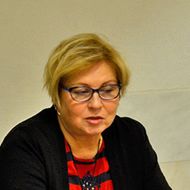
Our special round table, ‘Business and Government Cooperation in a Global Crisis’, like most of the events of the April Conference, was held online. To do this, we had to work with the conference organizing committee in new ways and learn new ways of organizing the event itself.
I should note that the organizing committee provided us with instructions for all issues that we encountered. Therefore, our round table did not experience any problems, which participants noted in their reviews.
In general, in my opinion, this new format of the conference is worth keeping in mind for potential use in parts of next year’s April Conference.
How will the April conference change?
This question is now being actively discussed by the programme and conference organizing committees. Obviously, all the innovations of this year were implemented out of necessity. But practice has shown that the new formats used during the conference this year have their advantages.
Jason Brownlee, Professor, Department of Government, University of Texas at Austin (USA)
They say political scientists are only good at predicting the past, but if I had to venture a guess about the future, I would say: there will be no going back to the pre-Covid status quo. We are learning what can and cannot be accomplished online. Generally speaking, when our work can be done online without a loss of quality, I think it’s preferable to go that way.
It is hard to say what the future of academic events is. Offline will still be vital for establishing scholarly relationships. Online seems to work for less information-rich exchanges of information, such as discussion of a specific paper or the teaching of general material that does not entail a lot of discussion among the students or audience members.
Holding an event online reduces costs, which can be prohibitive. In this respect, online probably helps academics who are on ‘the periphery’, materially and geographically. Living in Texas, I would place myself in that periphery (as opposed to be in the ‘centre’ on the upper East Coast). I like the idea of having discussions with colleagues in the USA and abroad that do not presuppose long travel times and hotel stays. (A major side benefit is the reduced carbon footprint.) I also think that public video recordings, which viewers can digest at their own pace, are a plus.
Evsey Gurvich, Head, Economic Expert Group
In my opinion, the experiment with holding the April Conference online fully paid off. Moreover, it raises the question of whether it is worth using an online format in the future, regardless of whether there is a pandemic. Personally, it seems to me that it would make sense for some types of sessions (for example, the honorary reports or the HSE report presentations) to be conducted online. This would attract more top-level economists (since the time needed for their participation would be reduced from a few days to an hour and a half) and expand the range of viewers who could then become active participants in future conferences.
Of course, such a revolutionary change in the format of the April Conference, which began over 20 years ago, requires serious discussion. I assume, however, that remote formats will soon become common practice for conferences all over the world.
Ivan Prostakov, Deputy Head of the Programme Committee, Head of the Conference Organizing Committee, Vice Rector of HSE University
Today, as the 21st April Conference comes to a close, we can say that holding the event in a new format was not easy, but that it was the only right decision. Not everything may have gone the way we wanted, and now the Programme Committee and the Academic Council will analyze the results of the conference and draw conclusions for the future. But it’s quite obvious that we have opened up new opportunities for the April Conference and we will certainly use them, no matter what format they take. And most importantly, I want to thank and congratulate all those involved in the organization of the event!
We look forward to learning what is in store for next year’s April International Academic Conference on Economic and Social Development. It is already less than a year away.
See also:
25th Yasin (April) International Academic Conference Now Accepting Proposals
Reports on new research results will be presented and discussed as part of the conference’s sections. These reports will be selected based on reviews of proposals. As always, the conference programme features expert discussions of the most pressing economic, social, internal and external issues in the format of roundtables and associated events.
Academic Council: HSE University’s Contribution to Achieving National Goals and Development Priorities to Increase
HSE University’s Development Programme until 2030 will be improved in order to increase the university’s contribution to achieving national goals and implementing the priorities of the country’s scientific and technological development. This decision was made by the university’s Academic Council on April 26. The meeting also addressed the principles for the development of HSE University’s external communications, one of which is the creation of a high-quality information field around the university.
Keeping Up with the Neighbours: Envy as a Driver of Economic Growth
Classical economic theory assumes that economic agents are entirely self-interested and rational in their pursuit of material well-being, and that they are not affected by external factors. As a result, externalities are not considered in any way when constructing economic models. Nevertheless, some sociologists argue for a revision of modern economic theory to incorporate the ethical dimensions of economic agents' behaviour. Kirill Borissov, Professor of the Faculty of Economics at the European University in St Petersburg, spoke at the XXIV Yasin (April) International Academic Conference and shared his observations from creating his own economic model incorporating the factor of envy.
Structural Transformation and Drivers of Sustainable Growth in Russian Economy Discussed at HSE University
The Russian economy has demonstrated high resilience to unprecedented external pressure and has managed to largely adapt to new conditions. As early as this year, it can go from recession to growth. The issue of where to find drivers and resources for this was discussed at a plenary session titled ‘Russian Economy under Sanctions: From Adaptation to Sustainable Growth’ at the XXIV Yasin (April) International Academic Conference held at HSE University as part of the Decade of Science and Technology. Minister of Economic Development of the Russian Federation Maksim Reshetnikov took part in the discussion.
‘People Want to Receive Only Useful Content’
Experts say that interest in news has sharply increased among the Russian audience. At the same time, part of the audience deliberately avoids it. What kind of content is in demand and will people continue to watch TV? These and other issues were discussed at the plenary session ‘ Info-hygiene and Information Elitism: How to Consume Media Properly’ at the XXIV Yasin (April) International Academic Conference.
'The Emerging Trends in Africa Will Shape the World Order, and We Need to Be Prepared for That'
Africa has the potential to become a new economic giant. Today, African countries are interested in comprehensive cooperation and strengthening their positions in the global arena, and they look forward to receiving assistance from Russia and China in developing their technology, economy, and social sphere. Effective engagement with Africa requires training a greater number of professional African studies specialists. The XXIV Yasin (April) International Academic Conference at HSE University featured a plenary session on 'Africa in a Changing World'.
Learning a Foreign Language Can Delay the Onset of Dementia
Dementia, a debilitating form of cognitive impairment, can be preventable. According to Professor Jubin Abutalebi of the University Vita Salute San Raffaele, Italy, and the Arctic University of Tromsoe, Norway, the easiest way to prevent cognitive decline after the age of 60 is to learn and practice foreign languages – the more languages, the better, suggests Professor Abutalebi in his presentation 'Preventing dementia through bilingualism' at the XXIV Yasin (April) International Academic Conference.
‘The BRICS Strategic Partnership Offers the World Creative, Unifying, Forward-Looking Initiatives’
Today, BRICS has become an influential factor in modern international relations and is perceived as one of the pillars of a more just world order. This association is not based on one party’s dominance, but instead, is built on a sound balance of interests. The role of the association was discussed by the participants of the plenary session ‘BRICS Development Strategy: Equal Opportunities in an Unequal World’at the XXIV Yasin (April) International Academic Conference.
Sanctions Create New Opportunities for Russian Companies
Like any crisis, the sanctions of 2022, besides problems, have created new opportunities for Russian companies. This is the conclusion that HSE University’s experts have come to. Their study results are presented in the report ‘Adaptation of Russian Industrial Companies to Sanctions: First Steps and Expectations’, prepared by HSE University for the XXIV Yasin (April) International Academic Conference.
Search Query: How to Study Migration with Google Trends
Experts have calculated that the number of international students in Russia has grown six times over the last decade, and researchers say that many of those who are studying today would like to stay in the country. This, alongside issues such as why Google Trends are worth looking into, were covered at the HSE XXIV Yasin International Academic Conference on Economic and Social Development section on demography and labour markets.


